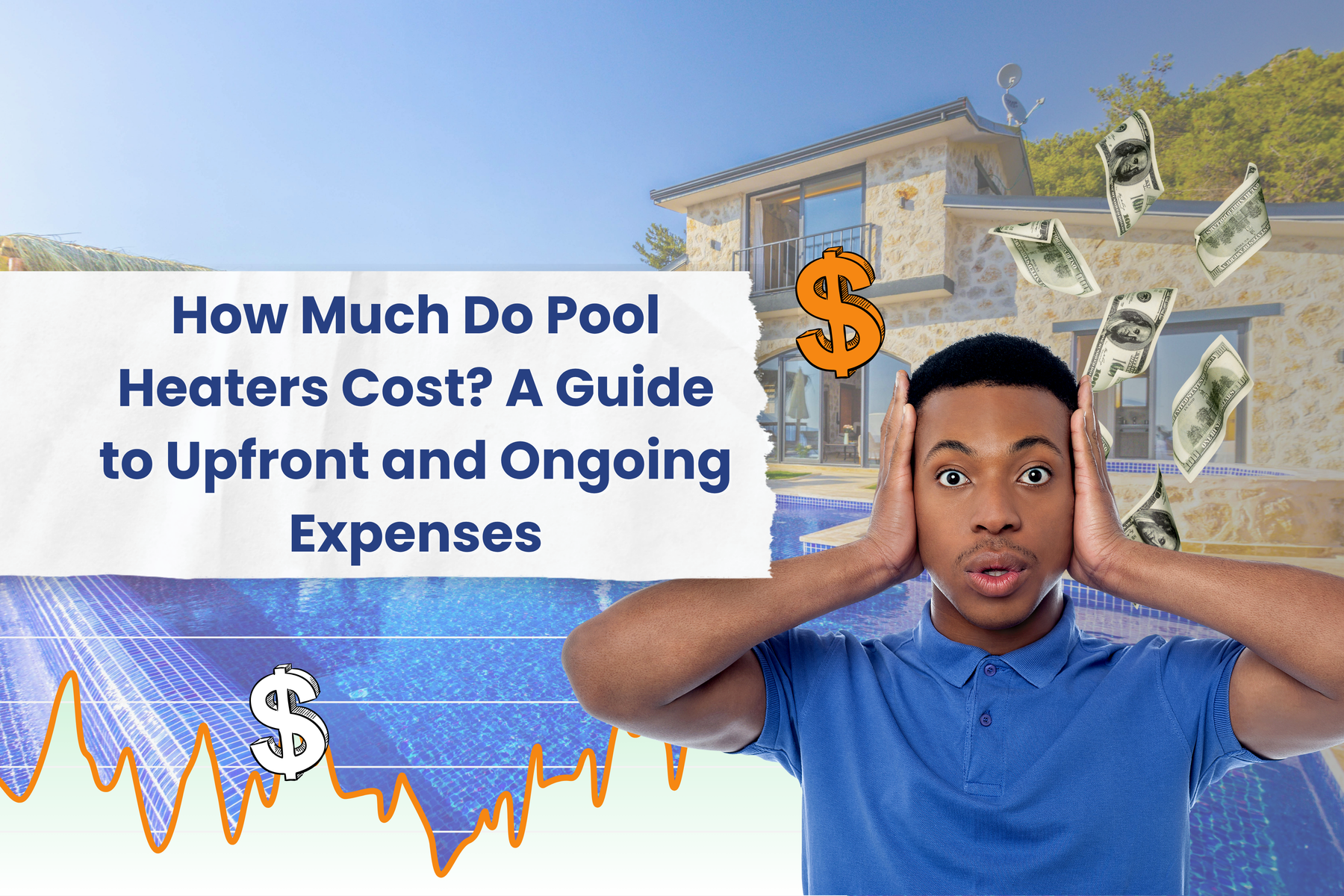
How Much Do Pool Heaters Cost? A Guide to Upfront and Ongoing Expenses
Understanding the Upfront Costs of Pool Heaters
Want warm pool water without boiling your budget? Pool heaters cost anywhere from $500 to $9,000 depending on the type. But that’s just the splash - installation, energy use, and maintenance all make waves too. Keep reading to avoid costly surprises and find the best heater for your swim style.
Initial Purchase Price by Heater Type
Pool heaters come in a few main types, and each has its own price range. Here's a quick look at what you might expect to pay:
-
Gas Pool Heaters: These typically run between $1,500 and $5,000. They're great for quick heating and are often preferred in colder climates or for occasional use. If you're using propane or natural gas already, this might be the simplest setup.
-
Electric Resistance Heaters: These cost $500 to $2,000 up front. They're best for small pools or spas since they use a lot of electricity. While cheaper to buy, they're more expensive to run.
-
Heat Pump Pool Heaters: Expect to spend $2,000 to $7,000. These are popular for energy efficiency. They draw heat from the air, making them ideal for warmer climates.
-
Solar Pool Heaters: solar options can cost $3,000 to $9,000, depending on your system size. They rely on the sun and can be super budget-friendly in the long run if you live somewhere sunny.
All prices vary based on size, brand, and features. Always compare options that fit your pool size and usage.
Installation Costs and Contributing Factors
Getting your heater installed professionally is a must for safety and performance. Most installs will cost $1,000 to $3,000, depending on a few factors:
-
Type of heater: A gas heater might need a new gas line. Solar heaters need space for panels.
-
Pool setup: If your equipment pad is tight or awkwardly placed, labor takes longer and costs more.
-
Local fees: Permits or inspections may add costs in some areas.
-
Installer rates: Prices vary by location and experience.
For example, one homeowner in Arizona paid $2,500 total to install a solar system because they already had optimal roof space. Meanwhile, a friend in New York spent $1,800 for a gas heater with a new gas line.
Analyzing the Running Costs of Pool Heaters
Monthly Operating Expenses by Heater Type
Buying the heater is just the start. Monthly bills can sneak up fast if you're not prepared. Here's what to expect by type:
-
Gas Pool Heaters: Around $200 to $500 per month. These heat quickly but burn a lot of fuel.
-
Electric Resistance Heaters: $150 to $300 per month. They're powerful but expensive to run long-term.
-
Heat Pump Pool Heaters: $50 to $150 per month. These use less energy and are great for regular use.
-
Solar Pool Heaters: Usually $0 to $50 per month. Aside from running the pool pump, there's almost no energy cost.
The key here is knowing your swim habits. If you’re heating the pool every day, those monthly costs add up quickly.
Factors Influencing Ongoing Pool Heating Costs
Not all heating costs are created equal. What affects your monthly bill?
-
Weather: Colder areas need more heating.
-
Pool size: A 40-foot pool takes way more energy than a small plunge pool.
-
Heater efficiency: Older or basic models may use more power.
-
Your habits: Heating it every day vs. just weekends makes a big difference.
-
Pool cover use: No cover? You’re losing heat every night.
One pool owner in Florida noticed a $100 drop in their bill just by using a solar cover. Small changes = big savings.
Tips for Reducing Pool Heater Running Costs
Keeping your bills in check doesn’t mean skipping warm swims. Try these simple tricks:
-
Use a solar cover: Traps heat and stops evaporation.
-
Lower your thermostat: Even 2 degrees cooler can cut energy use.
-
Heat only when needed: Set a timer to avoid running it all day.
-
Keep it maintained: Clean filters and yearly tune-ups help it run better.
-
Consider hybrid setups: Some pool owners pair a solar heater with a gas backup for cloudy days.
It all adds up. And it can mean more swim time for less money.
Conclusion
There’s more to buying a pool heater than just the price tag. Between purchase, installation, and monthly bills, it helps to see the full picture. Knowing your pool size, climate, and swim habits can guide your decision. Whether you go gas, electric, heat pump, or solar, choosing the right heater means fewer surprises - and more relaxing swims.
Related reading:



Leave a comment